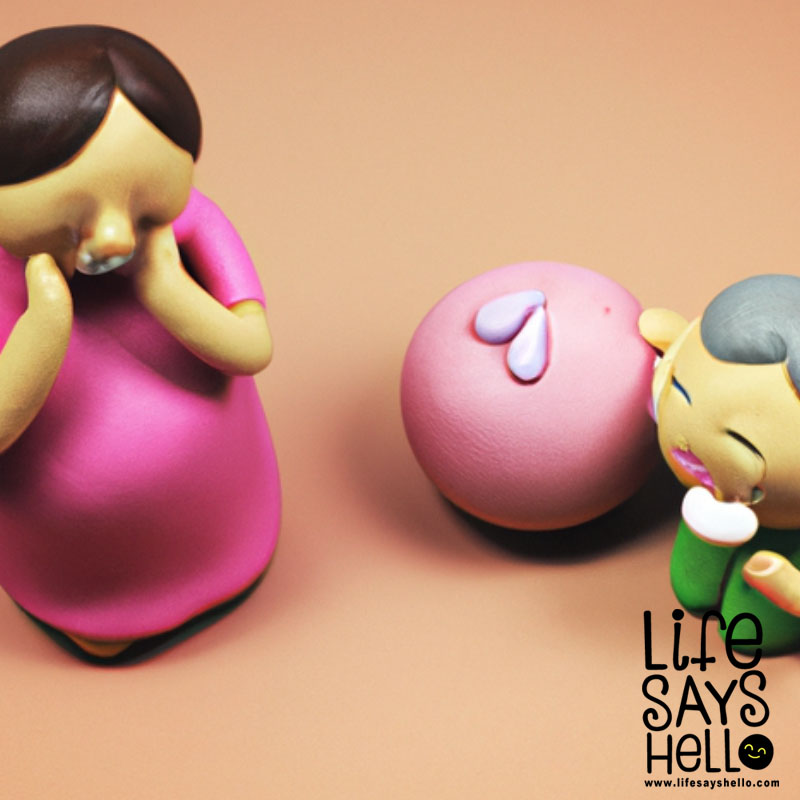The Case Against Abortion: Comprehensive Analysis of Reasons to Make Abortion Illegal

In this article, we will delve into the complex and controversial issue of abortion, presenting a comprehensive analysis of the reasons why abortion should be made illegal.
Abortion has been a topic of heated debate for decades, with people holding strong opinions on both sides of the issue. While some argue for a woman's right to choose, others believe that the sanctity of human life should be protected at all costs.
In this article, we will explore the various reasons why abortion should be illegal, from moral and religious perspectives to the psychological and physical effects on women and the role of government in protecting human life. Our aim is to present a well-rounded argument that highlights the importance of considering the implications of abortion on society as a whole.
The Sanctity of Life
One of the core arguments for making abortion illegal is the belief in the sanctity of human life. This belief is deeply rooted in many religious and philosophical traditions, which consider life to be sacred and inviolable. For instance, in Christianity, it is believed that life begins at conception and that every human being is created in the image of God. Similarly, in Buddhism, the first precept is to abstain from taking life, which includes the life of an unborn child.
By accepting the premise that life begins at conception, abortion can be viewed as morally wrong and a violation of the sanctity of life. In this context, making abortion illegal becomes a necessary step to protect the most vulnerable members of society – the unborn. Furthermore, this belief in the sanctity of life extends to the idea that all human beings, regardless of their stage of development, have inherent value and should be treated with dignity and respect.
The Psychological and Physical Effects on Women
Another reason to make abortion illegal is the potential negative psychological and physical effects it can have on women. Research has shown that some women who undergo abortions may experience feelings of depression, anxiety, and guilt, which can have long-lasting impacts on their mental health. Additionally, the stigma surrounding abortion can exacerbate these feelings, leading to further emotional distress for women who choose to terminate their pregnancies.
In terms of physical effects, abortion procedures can sometimes lead to complications, such as infection, hemorrhage, and damage to the reproductive organs. While these complications are relatively rare, they can have serious consequences for a woman's health and future fertility. By making abortion illegal, proponents argue that women can be protected from these potential risks and encouraged to seek out alternative options for dealing with unplanned pregnancies.
The Slippery Slope Argument
The slippery slope argument is another reason often cited for making abortion illegal. This argument posits that allowing abortion could lead to a devaluation of human life, which could, in turn, justify other morally questionable actions. For example, if society accepts the premise that it is permissible to end the life of an unborn child, it may become easier to justify other forms of killing, such as euthanasia or assisted suicide.
While the slippery slope argument is not without its critics, it does raise important questions about the potential consequences of normalizing abortion. By making abortion illegal, society can reaffirm its commitment to the sanctity of human life and avoid the potential dangers associated with the devaluation of life.
Alternatives to Abortion
Proponents of making abortion illegal often point to the availability of alternatives to abortion as a reason for their stance. These alternatives include adoption, safe haven laws, and support programs for pregnant women and new mothers. By promoting these alternatives, the argument goes, women facing unplanned pregnancies can be provided with viable options that do not involve ending the life of their unborn child.
Adoption, for example, offers a way for women to give their child a chance at life while also providing a loving home for a child in need. Safe haven laws, which allow parents to anonymously and safely surrender their newborns at designated locations without fear of prosecution, also provide an alternative to abortion for women who may feel overwhelmed by the prospect of parenthood. Additionally, support programs such as financial assistance, housing, and counseling can help women navigate the challenges of pregnancy and motherhood, making it more feasible for them to carry their pregnancies to term.
Legal Precedents and the Role of Government
The argument for making abortion illegal is also supported by various legal precedents and the role of government in protecting the rights of its citizens. The Declaration of Human Rights, for instance, states that everyone has the right to life, liberty, and security of person, which can be interpreted as including the unborn. Additionally, several national laws and constitutions explicitly recognize the right to life of the unborn, further bolstering the case for making abortion illegal.
In this context, the role of government becomes crucial in upholding and protecting the rights of all its citizens, including the unborn. By making abortion illegal, governments can ensure that the sanctity of human life is respected and that the rights of the most vulnerable members of society are not infringed upon.
Conclusion
In conclusion, the reasons for making abortion illegal are multifaceted and deeply rooted in moral, psychological, and legal considerations. By examining the sanctity of life, the potential negative effects on women, the slippery slope argument, the availability of alternatives to abortion, and the role of government in protecting human life, we can better understand the complexities of this controversial issue.
Ultimately, it is up to each individual to consider these arguments and make an informed decision about where they stand on the issue of abortion. By engaging in open and respectful dialogue, we can work towards a society that values and protects the sanctity of all human life.




Comments